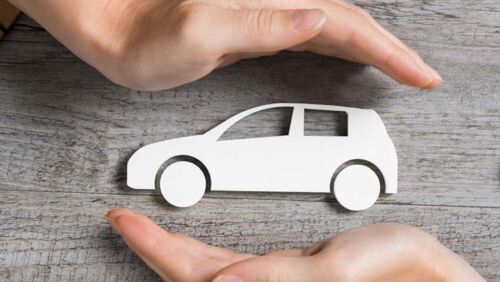What you need to know about car warranties
By Toby Hagon
Warranties on new cars are longer than ever, with some extending to seven years with no limit on the kilometres you can travel and still be protected.
Most big brands offer at least five years of warranty, many allowing unlimited kilometres - most of the time.
Use your car for ridesharing or pizza delivery on the side and often the "unlimited kilometre" part of the warranty gets capped at, say, 150,000km. In other words, if you're actually going to drive your car the big distances implied by the warranty then the manufacturer will often have clauses in the fine print that mean the unlimited kilometre sales pitch is more marketing spiel than anything worth more than what you were offered previously.
It's one of many tricks to look out for when leaning on the warranty for repairs or peace of mind.
If you're buying a demonstrator that was registered for the purposes of test drives, the warranty will have started the day the car had numberplates affixed. Sure, it may have only travelled a few hundred kilometres over six months, but you'll be six months short of the usual warranty period.
It's also worth remembering a warranty goes both ways. Yes, the manufacturer promises to cover defects and failures, but it also expects you to service the car according to the logbooks it came with.
If you don't, all or part of your warranty could be void. While not changing the engine oil may lead to the refusal of a claim on a blown engine, it should not impact the failure of a touchscreen in the cabin.
But servicing to the manufacturer's requirements doesn't have to be done at their own dealerships, as much as they try to lure you back. It can be done by any qualified mechanic provided it's done to the minimum of what the manufacturer stipulates.
There are also components not covered by warranty for normal wear. They include windscreen wiper blades, light globes and brakes. That doesn't mean they're not covered by warranty; any defect or failure as a result of normal use could well be covered by the warranty, but normal wear and degradation is not.
Tyres tend not to be covered by the vehicle manufacturer warranty but will instead be covered by the maker of the tyre - and it won't cover normal wear. Some tyres can wear out in 20,000km or less.
And while the high voltage battery in an electric vehicle will typically have a separate warranty covering seven or eight years of use (and usually around 160,000km), the regular 12V battery to cover ancillaries such as the air-conditioning and sound system is usually only a couple of years. So, even if that battery gives up while covered by the regular warranty, you may still be up for a new one.
Be careful how you use your car, too. Many manufacturers forbid using the car on a race track, with others excluding use of the car in competitions or racing.
And bird poo or tree sap that causes paint blemishes will also likely be refused a warranty claim. In listing items not covered by warranty, Volkswagen says: "Any defects resulting from airborne industrial pollutants including acid rain, industrial fall out, salt, sand, stones, tree sap, bird and animal droppings, or windstorm, hail, flood, lighting or other acts of nature."
Warranties form only part of your consumer protection, too. The ACCC describes them as a "voluntary promise", albeit one enforceable under Australian Consumer Law.
Action and comments by the ACCC have suggested it expects consumers to be protected in excess of just a few years, one reason many brands stepped up their warranty protection. The thinking is if they know there is an ACCC expectation to repair a car they may as well officially extend the warranty and use it in their marketing.
As for how long ACL covers repairs, it depends on many factors, according to the ACCC. And there's plenty of grey area, which is why a longer factory warranty is often more valuable than having to negotiate under ACL.
The ACCC states: "The ACL's consumer guarantee provisions apply for an unspecified but 'reasonable time'. What constitutes a 'reasonable time' in relation to a particular vehicle will be determined by a range of factors, including the nature and cost of that vehicle."
So understand your rights and pore over the fine print before you sign on the dotted line.
New car warranties
There's been a lot of movement on warranties in recent years when it comes to extending them.
But if you're shopping for a used car, it's worth noting when the warranty kicked in.
Toyota's five-year warranty only applied from 2019, for example, so if you're buying a 2018 model it may not be backed by the factory warranty.
Similarly, the Volkswagen five-year warranty only applies to new cars sold from 2019.
Some of the best new car warranties:
Kia: 7 years, unlimited kilometres
MG: 7 years, unlimited kilometres
Isuzu: 6 years, 150,000km
And some of the worst
BMW: 3 years, unlimited kilometres
Tesla: 4 years, 80,000km
Porsche: 3 years, unlimited kilometres
Get stories like this in our newsletters.



